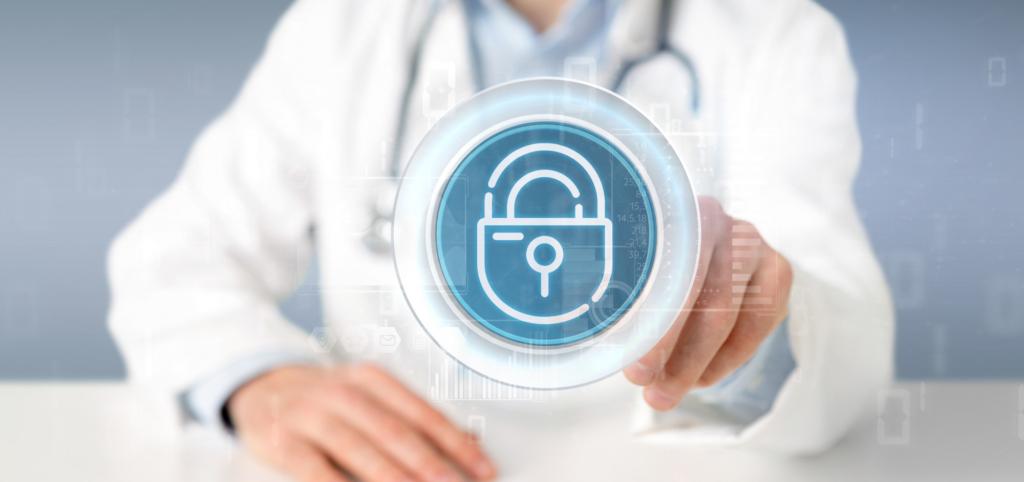Start Building Your Child’s Credit
In the digital era, where data is synonymous with wealth and power, healthcare isn’t immune to the perils of data breaches. Hospital data, which encompasses sensitive patient information and crucial financial details, remains a prized target for cybercriminals.
According to a recent survey by Sophos, almost two-thirds of healthcare organizations surveyed were hit by a ransomware attack in 2022. Understanding the magnitude and implications of these attacks is crucial for ensuring patient well-being and compliance with data protection laws. This article will unfold the concept of hospital data breach, including its impact, examples, and preventative measures.
What Is a Hospital Data Breach?
A hospital data breach is an incident where unauthorized individuals gain access to the confidential data stored by a healthcare facility, compromising patient information’s privacy and security. This information might include personal details, medical histories, billing information, and other sensitive data that hospitals typically store. Medical data breaches can occur through various means, such as:
- Ransomware attacks
- Phishing scams
- Insider threats
- Inadvertent disclosures
- System and software vulnerabilities
- Mobile and IoT devices
Sadly, the consequences are far-reaching, both for the institutions involved and the individuals whose data has been exposed.
Recent Medical Data Breaches

Data breaches in hospitals have become rampant in recent years. Patient and employee information has been exposed, putting their health and financial security at risk. Here are some of the largest hospital data breaches from the past few years:
- Trinity Health data breach
- Morley Companies data breach
- L’Assurance Maladie data breach
- ARcare data breach
Trinity Health Data Breach
Trinity Health experienced a concerning data breach event in May 2020, which impacted over three million patients. The breach occurred due to a ransomware attack on Blackbaud, Trinity Health’s third-party vendor responsible for storing a backup of its donor database.
While Trinity Health was able to block the initial ransomware attack attempt successfully, the hackers had already stolen a subset of data linked to Trinity Health patients. Blackbaud paid the cybercriminal’s ransom demand in exchange for the stolen database and a guarantee that the data would be destroyed. However, such guarantees are difficult to verify. Unfortunately, Trinity suffered another breach in 2021 that impacted over 586,000 patients as part of a larger cyberattack against file transfer platform Accellion.
The compromised patient information may have included:
- Full names
- Addresses
- Email addresses
- Dates of birth
- Healthcare providers
- Dates and types of healthcare services
- Medical record numbers
- Immunization types
- Lab results
- Medications
- Claims information
Morley Companies Data Breach
In February 2022, Morley Companies announced that the corporation suffered a data breach that impacted 521,046 individuals. Hackers gained unauthorized access to Morley’s systems through a ransomware attack. The compromised data included names, addresses, Social Security numbers (SSNs), dates of birth, client IDs, medical information, and health insurance details.
Morley waited until February 2022 to notify victims, which led to a series of lawsuits for lack of timely reporting.
L’Assurance Maladie Data Breach
In March 2022, French insurance body L’Assurance Maladie suffered a breach after hackers compromised 19 accounts, mostly belonging to pharmacists. The stolen data included names, SSNs, dates of birth, GP details, and reimbursement levels, impacting around 510,000 people.
ARcare Data Breach
In February 2022, cybercriminals gained unauthorized access to ARcare’s systems for months before being discovered in April. Some stolen data was later exposed online, suggesting a possible ransomware attack.
The compromised information included names, SSNs, medical and treatment records, and health insurance details of 345,000 people.
The Impact of Medical Data Theft on Patients
The consequences of a data breach, particularly within the healthcare sector, extend far beyond immediate financial implications. When patient data is exposed, it puts individuals at risk of identity theft, identity fraud, and even potential physical harm if their health information is manipulated.
Medical data theft can also have long-term psychological impacts on patients, as they may feel distressed by the unauthorized access to their personal and often deeply sensitive information. Additionally, patients might be reluctant to share information following a breach, hindering a crucial aspect of effective healthcare—patient-doctor trust.
How Hospitals Can Prevent Data Breaches

Preventing data breaches is essential for ensuring patient and staff safety. Hospitals can enhance their data security through:
- Robust cybersecurity measures
- Employee training
- Data encryption
- Regular audits
- Legal compliance
Robust Cybersecurity Measures
Implementing and regularly updating cybersecurity protocols, including firewalls, anti-malware tools, and intrusion detection systems, is crucial for hospitals. Systems should be monitored around the clock for suspicious activity. Old or unsupported software that contains security holes should be upgraded or replaced to reduce data breach risks.
Employee Training
Hospitals must prioritize cybersecurity awareness training for all employees. Staff members need to understand the risks of clicking on suspicious links or falling for phishing scams that could compromise credentials. Hospitals should conduct regular simulated phishing tests to gauge staff vigilance and provide additional training as needed.
Access Management
Access management is one of the most important ways hospitals can prevent data breaches. By employing strict access controls, hospitals can ensure that only authorized doctors, nurses, and other staff members can access sensitive patient data. Access should be granted on a need-to-know basis, and all access to systems should be logged and monitored for suspicious activity.
Data Encryption
Hospitals should encrypt all patient data, both stored on devices and networks and in transit. Data encryption renders the data unreadable and unusable to unauthorized parties even if they manage to access it, boosting the level of security.
Regular Audits
Performing routine audits of the security infrastructure can help identify and mitigate vulnerabilities before hackers can exploit them. Hospitals should perform routine penetration tests, vulnerability scans, and security audits to find issues and address them promptly. Audits should cover firewalls, access controls, endpoints, and other systems that store sensitive patient data.
Legal Compliance
Adhering to regulatory standards like the Health Insurance Portability and Accountability Act (HIPAA) and the Health Information Technology for Economic and Clinical Health Act (HITECH) can help fortify data security frameworks.
HIPAA’s rules help healthcare providers make sure patient information stays safe. Patients trust that their doctors, hospitals, and insurance companies will protect their medical records, and following HIPAA regulations is important for maintaining that trust.
If healthcare organizations don’t follow HIPAA, they can face hefty fines from the government, so healthcare providers have an additional incentive to comply with HIPAA’s security standards.
HIPAA applies to various kinds of healthcare groups that deal with patient data, such as:
- Pharmacies
- Health insurance companies
- Companies that store or transmit health information for healthcare organizations
A medical data breach can expose your personally identifiable information to malicious people who can use it for fraudulent activities. This can sometimes happen even when regulations are followed, so it’s crucial to do what you can to safeguard your and your family’s data. This is especially important for children, as they’re the most vulnerable—in fact, the risk is so pronounced that a child falls victim to identity theft every 30 seconds. With identity protection services like FreeKick, you can rest assured knowing your child’s sensitive data is safe and enjoy an extra layer of security.
Never Fall Victim to Identity Theft With FreeKick
With a child’s identity being stolen every 30 seconds, this crime is more common than you might think—and it’s important to take every precaution you can. That’s where FreeKick by Austin Capital Bank comes in—it’s a two-in-one platform that protects your family’s identities and helps build credit for your children.
How FreeKick Protects Identity
FreeKick offers multiple identity protection features for both adults and minors. For you and your adult children, FreeKick offers the following services:
- Credit profile monitoring
- SSN monitoring
- Dark web monitoring for personal information
- Up to $1 million identity theft insurance
- Full-service white-glove concierge credit restoration
- Lost wallet protection
- Court records monitoring
- Change of address monitoring
- Non-credit (Payday) loan monitoring
- Free FICO® Score monthly
- FICO® Score factors
- Experian credit report monthly
For minor children, FreeKick offers:
- Credit profile monitoring
- Social Security number (SSN) monitoring
- Dark web monitoring for children’s personal information
- Up to $1 million identity theft insurance
- Full-service white-glove concierge credit restoration
- Sex offender monitoring—based on sponsor parent’s address
How FreeKick Builds Credit
Once you’ve secured your family’s identities, it’s time to think about their financial future.
With FreeKick’s credit building service, which is available for children aged 13 to 25, you can give your child up to five years of credit history once they turn 18. This will help them save $200,000 during their lifetimes by giving them access to more favorable loan terms and other financial perks.
You have to take three steps:
- Create an Account—Go to FreeKick.bank, sign up for an account, and choose a deposit amount you’re comfortable with
- Set It and Forget It—FreeKick will automatically start building 12 months’ worth of credit history for your children
- Keep Growing—After 12 months, you can close the account without any fees or continue building credit for your family for another year
FreeKick Pricing
FreeKick offers flexible pricing. There are two plans you can choose from:
| FDIC-Insured Deposit | Annual Fee |
| $3,000 | $0 (Free) |
| No deposit | $149 |
Each plan offers:
- Credit building for six children aged 13 to 25
- Identity protection for two parents and six children aged 0 to 25
Protect your family from identity theft and financial hardship—sign up for FreeKick today.

Freekick provides a double dose of financial empowerment and security for your whole family. It helps teens and young adults build strong credit profiles and offers identity motoring for up to two adult parents and six children under 25.





